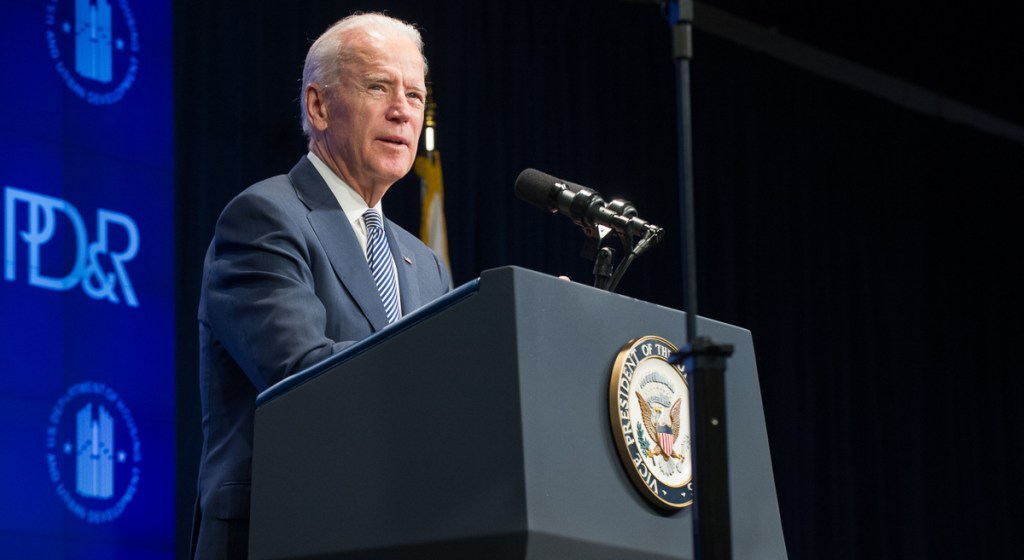President Joe Biden released a legislative proposal on Tuesday that’s rankling the real estate industry — nationwide rent control.
Biden’s new plan would cap annual rent hikes at 5% for two years for landlords who manage 50 or more rental units, which the administration said would cover 20 million units, or roughly half of all rental units in the country. Exemptions would be provided to new construction and units with “substantial” renovation and rehabilitation.
Landlords who break the cap would be denied federal tax benefits. The only one mentioned in the White House’s fact sheet is “faster depreciation write-offs.”
While it’s unclear what the monetary impact of this proverbial legislative “stick” would be, the housing industry and some economists have long contended that rent-control policies actually cause rents to rise.
Housing industry organizations were quick to condemn Biden’s proposal. National Housing Conference (NHC) president and CEO David Dworkin released a statement in which he claimed that rent caps will have “a chilling effect on housing supply.”
“While we appreciate the administration’s intent to address the shortage of affordable rental housing, research has consistently shown that mandatory rent control is an ineffective policy that fails to address the underlying issues of housing affordability — the fact that our nation’s housing supply has not kept pace with the needs of our growing population,” Dworkin said.
Bob Broeksmit, president and CEO of the Mortgage Bankers Association (MBA), released a statement that echoed NHC’s.
“There are endless examples in localities in America and around the world that prove that rent control is a counterproductive policy idea that ultimately harms renters by distorting market pricing, discouraging new construction, and degrading the quality of rental housing,” Broeksmit said, adding that he believes the proposal is politically motivated. “While the odds are stacked against this proposal ever passing Congress, a federal rent control law would be catastrophic to renters and our nation’s rental housing market.”
Diane Yentel, president and CEO of the National Low Income Housing Coalition (NLIHC), released a statement that applauded the proposal as “historic” while also making a call to enact elements of the organization’s National Tenants Bill of Rights, which it developed in conjunction with other affordable housing advocacy organizations.
“Recent, unprecedented increases in homelessness in communities across the country are the direct result of equally unprecedented — and unjustified — rent hikes that occurred in the pandemic’s aftermath,“ Yentel said. “Had such protections against rent gouging been in place then, many families could have avoided homelessness and stayed stably housed.”
Government watchdog Accountable.US called on Congress to act immediately on the proposal.
“The administration’s response is common sense,” said Tony Carrk, the group’s executive director. “If a giant landlord swimming in profit refuses to limit their rent increases, why should they enjoy tax breaks at the expense of the very renters they’re price-gouging?”
The rent cap isn’t the only measure in Biden’s proposal, and some could be enacted through federal agencies without legislative action by Congress.
The president called for the Federal Housing Finance Agency (FHFA) to apply protections for renters of multifamily units financed by loans acquired by the agency. These protections include a 30-day notice of rent increases, a 30-day notice of an expiring lease and a five-day grace period for late fees on missed rent payments.
In conjunction with Biden’s proposal, the Bureau of Land Management (BLM) announced it will open a public comment period on the sale of 38 acres of public land in Nevada for the purpose of affordable housing construction. BLM is also considering purchasing another 562 acres of public land in Southern Nevada and another 26,000 acres in the Las Vegas Valley. Biden unveiled this proposal during a campaign stop in Las Vegas.
Also on Tuesday, the U.S. Department of Housing and Urban Development (HUD) announced $325 million in Choice Neighborhood grants for affordable housing construction and community development.
The proposal is part of a broader policy of to address housing costs, which have skyrocketed since the beginning of the COVID-19 pandemic in March 2020. It’s been a key driver of inflation, an issue Biden has been heavily criticized for.
According to Zillow’s observed rent index, nationwide rents have increased 32.1% since the start of the pandemic. And a new report from Redfin found that homeowner mortgage payments have almost doubled in swing states since the last presidential election.
On the homeownership side, Biden has proposed tax credits for first-time homebuyers and homeowners trading up to their second home, in addition to monthly tax credits for mortgage payments.





